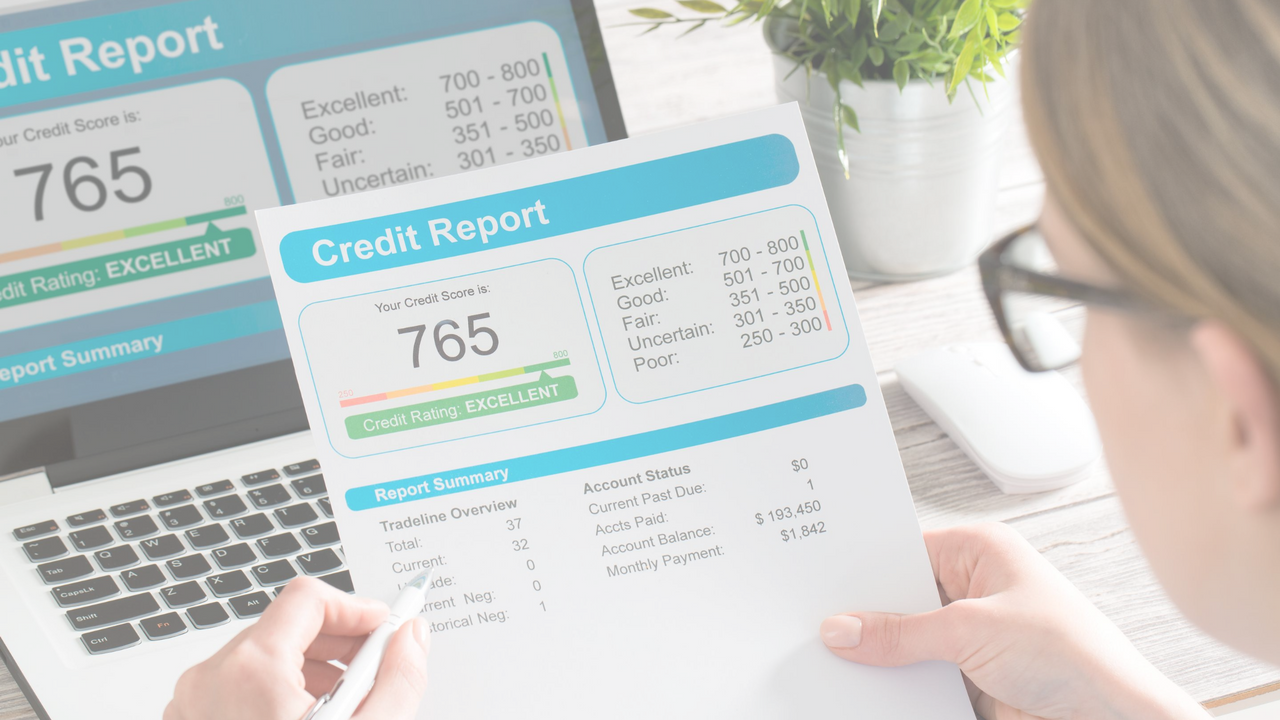Busting 3 Myths about Women & Money

Have you ever been told that you're not good with money? That women aren't as financially savvy as men? That we're more prone to overspending and living beyond our means? Unfortunately, these kinds of stories are all too common. But the truth is, they're just myths.
I’m going to bust some of the most pervasive myths about women and money, and share some truths that will help you take control of your finances.
Myth #1: Women are naturally bad with money.
There's no biological or genetic reason why women would be less skilled at managing finances than men. Studies have shown that women tend to be more diligent about budgeting and saving than men, and are less likely to take on risky investments.
A report published in 2018 by the Warwick Business School in the UK analyzed data from 2,800 investors over a three-year period and found that women generated higher returns on their investments than men. The report attributed this trend to the fact that women tend to be more patient...
How to Stop Living Paycheck to Paycheck - Part 2

In our previous blog post Stop Living Paycheck-to-Paycheck, we discussed some common reasons people live paycheck-to-paycheck. In this blog post, we'll share some ways that can help you get out of this cycle and put your money to work for you.
Setting a Budget
The first step is to set a budget. When you set your budget, it's important to consider your needs, wants, and future, which involves savings according to your goals and plans. Creating a budget can initially seem overwhelming, but keep reading for helpful tips.
Determine Your Income
Your income is not what your boss pays you or what you earn if you work for yourself; it's what you have left over after all mandatory paycheck deductions like taxes and insurance have been paid. After all, you cannot budget what you do not have. So getting this figure right will help.
Add Up Your Expenses
This may take longer if you're in debt or have many expenses you didn't realize you had. The best way to do this is to open...
Improve Your Financial Wellness with These Five Tips
With Valentine's Day right around the corner, many of us are focusing on those special people in our lives and how we can show them what they mean to us. And that is certainly important…but I also want to challenge you to do something for yourself.
Self-love and taking care of yourself should be a priority - I'm sure you're familiar with the airplane safety speech…put the oxygen mask on yourself BEFORE assisting others. And that's great advice for other areas of your life too!
As a financial advisor and money coach, I want to encourage you to do one thing this month that will help you improve your financial wellness. After working with hundreds of clients, I know that financial wellness can significantly impact a person's overall well-being.
There have been countless challenges since March 2019, and now we're experiencing high rates of inflation and supply chain issues. So this is the perfect time to see what changes you need to make in the new year....
5 Financial Myths to Stop Believing (and the Truths Instead!)

People like to make a lot of proclamations about what to “always” or “never” do with your money. However, these are quite often total financial myths. And, when it’s coming from a source you trust, you tend to take these financial myths at face value rather than exploring the truth of the situation for yourself.
These five financial myths can negatively impact your mental wellbeing as well as that of your budget and financial security. So let’s play MythBusters and talk through some of the things we always hear about finances and the reality of the matter instead.
Financial Myth #1: You don’t need an emergency savings fund if you have a credit card.
The Reality: This is a very costly (and not always assured) way to cover emergencies.
This is one of the financial myths that always gets me going! There are so many things that could get you into trouble around credit cards and the way people use them is one of them.
The reality is that...
Understanding Your Credit Score

It’s no secret that many Americans have very little knowledge of their credit score or general knowledge about keeping credit scores healthy. For example, VantageScore reported in their 2019 annual survey about consumer understanding of credit scores the following:
- 78% of respondents in 2012, but only 62% in 2019, correctly indicated that people have more than one credit score. [That is down 16% from 2012]
- 85% in 2012, but only 66% in 2019, correctly answered that keeping a low credit card balance helps raise a low credit score or maintain a high one. [That’s down 19% from 2012.]
The study found that the people who responded thought they had excellent or good knowledge. In fact, more people in 2019 said that they were confident in their knowledge than they were in 2018. But, as you can see, people actually know less about their credit scores. They just think they have a very firm grasp on the subject.
Understanding these numbers and the impact they will make in your...
Effectively Managing Debt: Understanding Good vs. Bad Debt

Are you bewildered by the complex nature of debt? Indeed, dealing with debt can be an intricate process. Like many others, I was once inundated with student loans, credit cards, and car payments, making it seem like a financial breather was impossible. However, believe it or not, not all debt is detrimental. Let's delve into how you can effectively manage your debt by distinguishing between good and bad debt.
How Debt Can Derail You
To many, debt is synonymous with financial doom. True, certain types of debt can jeopardize your financial stability and impede your progress toward a secure financial future. It's important to understand the broad spectrum of debt and how each type affects your credit differently. Bad debt could comprise upside-down loans, high-interest rates, debt exceeding your worth, or simply poor financial decisions like payday loans.
Detrimental Debt Actions
Incurring a loan for something you couldn't outright afford often leads to negative debt scenarios. This...
How Online Bill Pay Can Save You Time and Money

Many people have switched to online bill pay, and most of them do it for the convenience factor. Did you know, though, that paying your bills online could actually save you time and money?
What is Online Bill Pay?
Online bill pay is, most simply stated – an online and/or automated way of paying your bills online. You can set it up with your bank to pay all of your bills or with each individual merchant by adding your credit, debit or bank account to a payment processor.
In addition to the convenience, online payment processors typically send regular reminders about payment due dates! That means, no more late payments and no more late fees.

Get Discounts Online
Many online payment processors offer discounts for automatic or online payments. Why? Because online payments are immediately applied to the account, meaning that the company spends less money on manpower.
More common than getting a discount for paying online is getting a discount for going...
Should You Pay Off Debt or Save For Retirement?

Juggling multiple financial goals can be stressful and confusing. It's especially challenging to make progress on other financial goals when you're drowning in debt. The message is clear when it comes to saving for retirement - start early! However, some financial gurus are adamant that you should pay off all of your revolving debt before investing for retirement. So, should you pay off your debt first or start saving for retirement? How do you decide?
#1 Make a Budget
When making your budget, you have to consider everything. Evaluate how much you make, your expenses such as insurance (health and vehicle), utilities, groceries, etc. your debts, and your saving plans. When figuring out each month what you can afford, we have to make sure we have every aspect covered in our life. Going through the budgeting process will help you determine the money you have available for debt repayment as well as for retirement savings.
For each debt, be sure to identify...
Financial Horror Stories: Overspending to Please Others
We’ve asked several people to share their financial horror stories with us with the idea that we can learn from their mistakes. Today we have the opportunity to get to know Sarah, owner of Lemon Blessings and practical family finance blogger.
What’s the biggest money mistake you’ve ever made, and how did it impact your life?
One of the biggest mistakes I made was applying for and accepting store credit cards early into my college years to have the clothes and decor I thought I needed. Halfway through my second year of college, I had cards for Macy's, Maurices, JCPenney, and more. To top it off, I often forgot to make the payments, which resulted in me defaulting on all of them.
If you could go back in time, what would you do differently?
I'd like to say that I wouldn't take out those credit cards to start with, but I honestly didn't know any different. I spent years watching the adults in my life charge everything on credit, even if...
Financial Horror Stories: Excessive Debt

We’ve asked several people to share their financial horror stories with us with the idea that we can learn from their mistakes. Today we have the opportunity to get to know Victoria, busy mom, wife, and full-time blogger from the UK. She started blogging in April 2013 and now writes four blogs. Her favorite topics include making and saving money, self-employment, healthy living, travel, and home and garden.
What’s the biggest money mistake you’ve ever made, and how did it impact your life?
The biggest mistake I ever made was getting into £17500 worth of personal and irresponsible debt aged 18-19 years old. As soon as I could get store cards and credit cards, I did, without thinking of the consequences.
Not that it's an excuse, but I had low self-confidence, low self-esteem, and was suffering from depression. I tried to fill a void in my self by going shopping and buying new things, thinking it would make me happy.
I had no money management skills and lived a...


